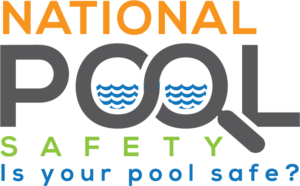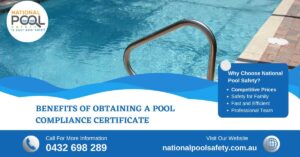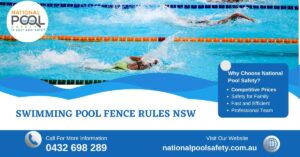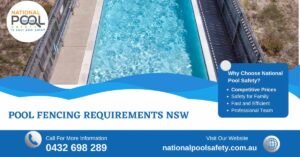Do I Need a Pool Compliance Certificate
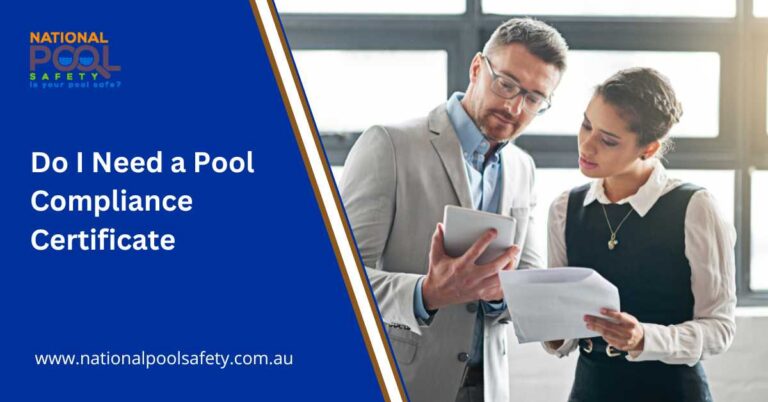
Owning a pool can be a wonderful feature for any home, but it also comes with important safety and regulatory responsibilities. One of the critical aspects of pool ownership in many regions of Australia is obtaining a pool compliance certificate. If you’re wondering whether you need a pool compliance certificate and what it entails, this article will provide a comprehensive overview.
If you have any more questions or need help obtaining a pool compliance certificate contact us.
What is a Pool Compliance Certificate?
A pool compliance certificate is a legal document that verifies your pool or spa meets the safety standards established by local government regulations. The primary purpose is to ensure that your pool has appropriate safety barriers and other measures to prevent accidents, particularly for young children.
Do I Need a Pool Compliance Certificate?
Yes, in most Australian states, you are required by law to have a valid pool compliance certificate to demonstrate that your pool adheres to safety regulations. The rules for pool compliance certificates may vary slightly depending on your location, so it’s essential to understand the regulations specific to your state or territory.
For example:
- In New South Wales (NSW), the Swimming Pools Act 1992 requires pool owners to obtain a compliance certificate after an inspection.
- In Queensland (QLD), pool owners must ensure that their pool is compliant before selling or leasing their property.
Why is a Pool Compliance Certificate Important?
A pool compliance certificate isn’t just a legal requirement; it also serves as a guarantee that your pool area is safe for use, particularly by young children. Pools that don’t meet the required safety standards may pose significant risks, and non-compliance can result in fines, penalties, or restrictions when you try to sell or lease your property.
What Does the Pool Compliance Process Involve?
To obtain a pool compliance certificate, an accredited inspector will visit your property and assess the pool for safety and regulatory standards. The inspector will check for features like:
- Proper fencing and barriers
- Secure and lockable gates
- No gaps or hazards around the pool area
- Signage indicating CPR procedures
Once your pool passes the inspection, the compliance certificate is issued, confirming that your pool meets all necessary safety standards.
What is a Certificate of Compliance?
A certificate of compliance is the document issued once your pool passes inspection. It serves as proof that your pool complies with the safety standards required by law. Without this certificate, your pool is considered non-compliant, and legal actions may follow, especially when it comes to selling or leasing a property.
FAQs
Can You Sell a House Without a Pool Compliance Certificate in QLD?
No, you cannot sell a house with a pool in Queensland without a pool compliance certificate. The seller must provide a valid certificate before finalizing the sale. However, if the pool is non-compliant, you can provide a notice of no compliance, which gives the buyer 90 days post-sale to address the compliance issues. This requirement ensures that pool safety is maintained, even during property transactions.
How Long is a Pool Compliance Certificate Valid for in NSW?
In New south wales a pool compliance certificate is valid for three years from the date of issuance. After this period, the pool must undergo another inspection to ensure that it still complies with safety regulations. This timeframe allows for regular checks to ensure ongoing safety.
What is Required for a Certificate of Compliance?
To receive a certificate of compliance, your pool must meet several safety requirements:
- A compliant fence or barrier
- Gates that close and latch automatically
- No climbable objects within proximity of the fence
- Pool signage, typically detailing CPR procedures
- Adequate water depth and distance from the fence
Your pool will need to pass an inspection by a licensed certifier or local council representative. Any issues identified must be addressed before the certificate is issued.
Conclusion
A pool compliance certificate is a vital part of responsible pool ownership. It ensures that your pool area is safe for use, particularly by children, and helps you avoid penalties. Whether you’re in NSW or QLD, understanding the pool compliance rules in your state is essential, especially if you’re planning to sell or lease your property. Regular inspections and adherence to safety regulations not only protect your legal standing but also ensure the well-being of your family and guests.
